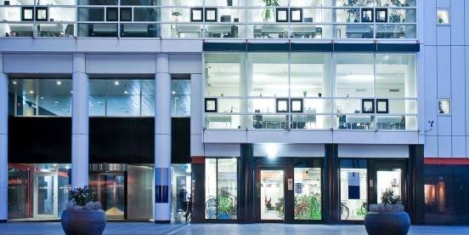March 28, 2017
Over half of employees in small and medium firms regularly work unpaid overtime 0
 Long working hours are embedded into Small and medium sized firm’s (SME) culture, new research by AXA PPP healthcare has claimed, with 47 percent of employees in SMEs across the UK regularly working four or more hours of overtime per week, 27 percent of these putting in seven or more hours and for half (52 percent), the extra hours are unpaid. In addition, 22 percent of employees take fewer than 30 minutes for lunch, 19 percent have cancelled family time and 19 percent have missed a child’s event such as a school play due to working over and above their contracted hours. Over half (54 percent) of employees have continued to work after putting children to bed. With Britain’s small and medium sized firms making up 99.9 percent of the UK’s private sector businesses, employing nearly 3/5 of its workforce and accounting for 48 percent of the turnover this accounts for a lot of workers.
Long working hours are embedded into Small and medium sized firm’s (SME) culture, new research by AXA PPP healthcare has claimed, with 47 percent of employees in SMEs across the UK regularly working four or more hours of overtime per week, 27 percent of these putting in seven or more hours and for half (52 percent), the extra hours are unpaid. In addition, 22 percent of employees take fewer than 30 minutes for lunch, 19 percent have cancelled family time and 19 percent have missed a child’s event such as a school play due to working over and above their contracted hours. Over half (54 percent) of employees have continued to work after putting children to bed. With Britain’s small and medium sized firms making up 99.9 percent of the UK’s private sector businesses, employing nearly 3/5 of its workforce and accounting for 48 percent of the turnover this accounts for a lot of workers.














 Accommodation and food services, manufacturing, and transport industries will be hardest hit by limits on movement of EU and non-EU workers following Brexit, a new report has claimed. The latest edition of Mercer’s
Accommodation and food services, manufacturing, and transport industries will be hardest hit by limits on movement of EU and non-EU workers following Brexit, a new report has claimed. The latest edition of Mercer’s 




















March 15, 2017
Mobile and internet connectivity should be a priority for commerical real estate 0
by Sara Bean • Comment, Facilities management, News, Property, Technology
Cluttons has proposed that a mobile coverage rating should be added to lettable workspace criteria, because despite mobile and internet connections being the fifth essential utility for the modern environment they are often overlooked when leasing space. With the rise of dependence on SIM-based equipment, the property firm argues that workplaces should be let with a coverage rating, measuring connectivity within a property. It argues that given the fast-paced evolving nature of the sector, landlords who invest in excellent telephony infrastructure are likely to secure tenants for longer periods and potentially achieve higher rental values. The approach is being borne out by the government recognising the importance of better mobile and internet infrastructure, by making it a focal point to extend superfast broadband to 95% of the UK by the end of 2017. This comes as no surprise given that several emerging markets are leap-frogging the adoption of technology and are quickly outpacing the UK in the sophistication of infrastructure on offer to occupiers. London is ranked near to the bottom of the internet connectivity league table when looking at Europe.
(more…)